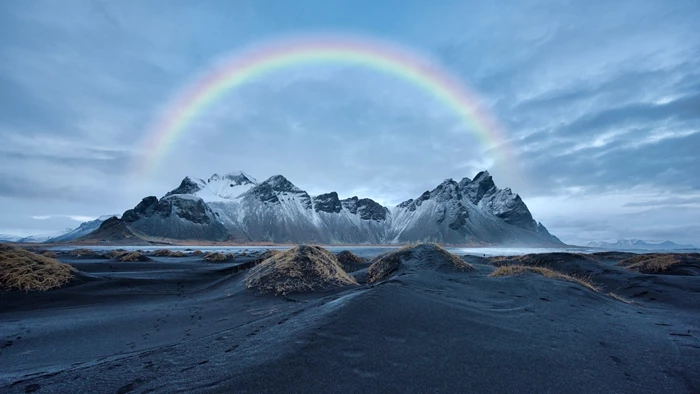Believers are the most well-equipped to lead in the face of a global climate crisis because of our faith in Christ. Many people hear that and ask, "What should I do?" Here's a framework and helpful tips for getting started.
Don't look away!
“There is a tendency at every important but difficult crossroad to pretend that it's not really there,” said author and environmentalist Bill McKibben in his book, The End of Nature. That is especially true as we face our global climate crisis.
It’s truly overwhelming, but just like we wouldn't ignore a house fire or bald tires on our car, we as Christians must courageously take action to prevent greater suffering. Thankfully, we are not alone. When we take action, we join our global church family, as believers from Europe, Asia, South America and many climate vulnerable countries are already taking a leading role as advocates for people and the planet. Small steps make a difference. Begin where you are, then keep walking.
As we take action, God uses moments along the way to cultivate our hearts. We've witnessed individuals, families, and entire communities respond to God through environmental stewardship. Creation care regularly leads to greater awareness of God's presence and love.
Presenting a framework for change
In Acts 1:8, Jesus gave his followers an approach for reaching the world with the good news. It feels natural to borrow this framework to think about how we can continue to reflect Jesus in our world: “But you will receive power when the Holy Spirit comes on you; and you will be my witnesses in Jerusalem, and in all Judea and Samaria, and to the ends of the earth.”
Notice that the movement is led by the Holy Spirit. In this moment (as always), we should go where the Holy Spirit guides. For the early church, that guidance sent them to Jerusalem (where they were), to all Judea and Samaria (their community), and to the ends of the earth.
Many Christian communities argue that we should focus exclusively on spreading the gospel. However, keep in mind that taking action on climate change can be an effective way to introduce God’s good news.
- When we practice creation care, we bear witness to our Creator.
- Creation care is stewardship and obedience to God.
- Climate change is the #1 concern of Gen-Z and Millenials. It’s also a top concern for much of the world’s population.
- When we care for the environment, we serve the “least of these” (those vulnerable, marginalized and living in poverty), both in the U.S. and around the world.
Jerusalem (Where you are)
Learn about it. A 1.5º warmer world doesn’t sound like a big deal until you look closely at the delicate balance in weather and ecosystems. Small changes have a significant impact. Here’s a video that explains it better.
Talk about it. Katharine Hayhoe, Christian and climate scientist says that the most important thing you can do to fight climate change is to talk about it. Start conversations with the people you know and the things you mutually care about.
Make responsible choices. There are many easy ways to make a difference, even in our homes. As consumers, the ways we live, shop and invest also has a ripple effect driving changes up the economic chain.
Go Green. Do you have a yard? Plant a tree, stop raking your leaves, or create a butterfly garden for migrating pollinators. No yard? Help your town green up urban areas, organize a stream clean-up or trail renewal. Research shows that 30% of our recovery from climate change will come from nature-based solutions.
Judea (Your community)
Mobilize your church. Join churches around the world that are taking a stand and making a difference through sermons about creation care, community gardens, restoration projects, going green, and more.
Be a community voice. Advocate for sustainable practices right in your community (schools, city, region). Talk to your parks service or city planner about ways to get involved with tree planting and other conservation areas.
Support the vulnerable. Look for ways to serve those most impacted by climate change and related effects. Consider older adults, those who are economically disadvantaged, those in urban areas, and refugee populations.
Pray. Personal prayer can align our hearts with the heart of God, and to plead for his intervention in the face of global suffering. At the same time, consider organizing a “climate vigil” prayer event. Visit climatevigil.org for resources and ideas.


















Thank you for this useful platform.